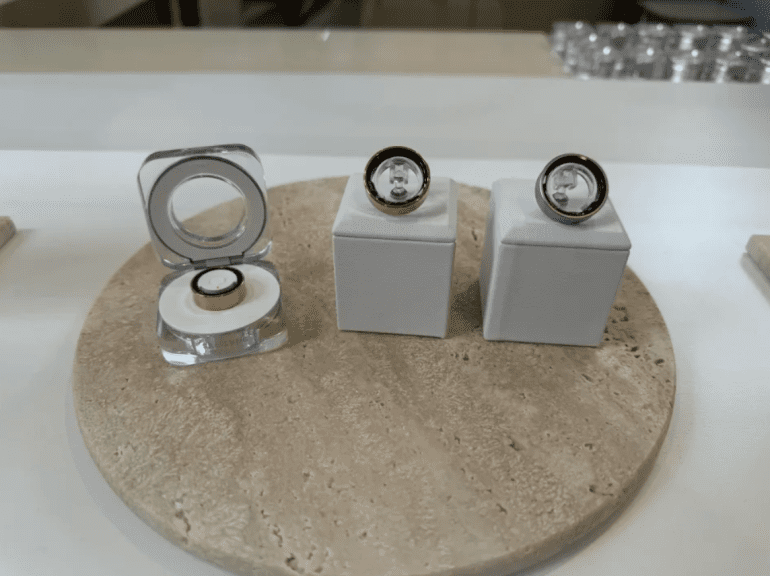- Samsung launches Galaxy Ring at Galaxy Unpacked event in Paris.
- Introduces AI capabilities via Galaxy AI platform for health monitoring.
- Priced at $399, available in black, silver, and gold in nine sizes.
- Features include sleep tracking, heart rate monitoring, workout detection.
- Energy Score assesses health and fitness metrics, offers personalized Wellness Tips.
- Competitors like Oura and Fitbit also offer similar health scoring systems.
- Potential market impact with Apple rumored to enter smart ring space.
Main AI News:
Samsung has entered the smart ring arena with the launch of its Galaxy Ring at the Galaxy Unpacked event in Paris. Unlike traditional smartwatches and fitness bands, smart rings offer discreet health and fitness tracking capabilities.
Oura’s eponymous smart ring has set a benchmark with its comprehensive sleep analysis, heart rate variability monitoring, and automatic workout detection. However, the smart ring market remains niche compared to smartphones. Samsung aims to dominate this emerging market by integrating generative AI through its Galaxy AI platform.
Priced at $399, the Galaxy Ring comes in nine sizes and offers a fashionable, tech-disguised design in black, silver, and gold. Samsung encourages customers to visit their stores for size fitting or order sizing kits online.
Equipped with built-in sensors, the Galaxy Ring tracks sleep metrics including heart and respiratory rates, monitors movement, and measures skin temperature changes for cycle tracking. It also provides heart rate alerts, auto detection of walking and running workouts, and alerts for prolonged inactivity.
Samsung aggregates these metrics into an Energy Score using its Galaxy AI platform, offering users a numerical assessment of their health and fitness status. This score reflects factors like sleep quality and physical activity level, complemented by AI-driven Wellness Tips for personalized improvement suggestions.
While Samsung leads the charge, competitors like Oura and Fitbit also offer health scoring systems. Oura uses a Readiness score, while Fitbit features a Daily Readiness Score, aiming to guide users on their readiness for physical activity.
The future of the smart ring market remains uncertain, with potential competition from Apple, rumored to be exploring its own smart ring. For now, Samsung positions itself as a frontrunner in this burgeoning field, poised to redefine personal health tracking with its Galaxy Ring.
Conclusion:
Samsung’s entry into the smart ring market with the Galaxy Ring, integrating AI for health monitoring, marks a significant move to expand beyond traditional wearables. With competitive pricing and advanced features, Samsung aims to establish dominance in a niche market that could see heightened competition with potential entries from tech giants like Apple. This launch signifies a strategic push towards enhancing personal health monitoring through discreet and sophisticated wearable technology.

